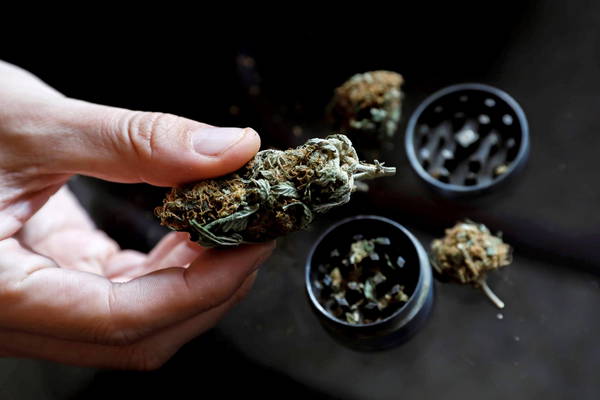
Table of Contents
Cannabis Oil for Depression, ADHD, PTSD, Anxiety, Bipolar & More
From a marijuana plant, formally known as cannabis sativa, you can extract more than 70 different components. Two of the most common constituents are delta-9-tetrahydrocannabinol (known colloquially as THC) and cannabidiol (CBD).
Because CBD is not as regulated as THC (though it may be technically illegal under federal laws), nor does it provide any accompanying “high” as THC does, it has become increasingly marketed as a cure-all for virtually any ailment. CBD oil items can now be found online to treat everything from back pain and sleep disorders to anxiety and mental health problems.
How effective is the CBD oil in treating symptoms of mental disorder and benefits for mental health?
CBD has no associated negative side effects of tolerance or withdrawal, unlike its sister THC. CBD is derived from the cannabis plant, and shouldn’t be confused with synthetic cannabinoid receptor agonists like K2 or spice.
1. ADHD
In a pilot randomized placebo-controlled study of adults with attention deficit hyperactivity disorder (ADHD), a positive effect was only found on the measurements of hyperactivity and impulsivity, but not on the measurement of attention and cognitive performance (Poleg et al., 2019). The treatment used was a 1:1 ratio of THC: CBD, one of the common CBD treatments being studied along with CBD oil on its own. This finding suggests more research is needed before using CBD oil for help with ADHD symptoms.
2. Anxiety
There are a number of studies that have found that CBD reduces self-reported anxiety and sympathetic arousal in non-clinical populations (those without a mental disorder). Research also suggests it may reduce the anxiety that was artificially induced in an experiment with patients with social phobia. Hence, medical marijuana doctors who are experts in CBD and medical marijuana concerns, are in favor of CBD.
3. Depression
An analysis of the 2017 literature (Loflin et al.) did not find any research that explicitly investigated CBD as a treatment for depression. A mouse study the researchers examined found that mice treated with CBD acted in a way similar to the way they acted after receiving antidepressant medication. Therefore, there is virtually little to no research support for the use of CBD oil as a treatment for depression.
4. Sleep
Only a single CBD study conducted on sleep quality:
Specifically, 40, 80, and 160 mg CBD capsules were administered to 15 individuals with insomnia. Results suggested that 160 mg CBD was associated with an overall improvement in self-reported sleep quality.

5. PTSD
There are two human trials currently underway that are examining the impact of both THC and CBD on post-traumatic stress disorder (PTSD) symptoms. One is entitled Study of Four Different Potencies of Smoked Marijuana in 76 Veterans With PTSD and the second is entitled Evaluating Safety and Efficacy of Cannabis in Participants With Chronic Posttraumatic Stress Disorder. The first study is expected to be completed this month, while the second should be completed by year’s end. It can take up to a year (or more) after a study has been completed before its results are published in a journal.
6. Bipolar Disorder & Mania
The depressive episode of bipolar disorder has already been covered in the depression section (above). What about the effect of the CBD oil on depressive or hypomanic episodes of bipolar disorder?
Unfortunately, it has not been researched yet. What has been researched is the use of cannabis to affect symptoms of bipolar disorder. More than 70 percent of people with bipolar disorder have reported trying cannabis, and around 30 percent use it regularly. However, such regular use is associated with earlier onset of bipolar disorder, poorer outcomes, and fluctuations in a person’s cycling patterns and severity of manic or hypomanic episodes.
More research is needed to see whether supplementing CBD oil might help alleviate some of the negative impacts of cannabis use. And additional research is needed to examine whether CBD oil on its own might provide some benefits to people with bipolar disorder.
7. Schizophrenia
Compared to the general population, individuals with schizophrenia are twice as likely to use cannabis. This tends to result in a worsening in psychotic symptoms in most people. It can also increase relapse and result in poorer treatment outcomes (Osborne et al., 2017). CBD has been shown to help alleviate the worse symptoms produced by THC in some research.
CBD Summary
As you can see, CBD work is only in its early stages with other mental health issues. There is insufficient support for using CBD oil for other mental illnesses. Some disorders, including autism and anorexia, have had little research done to see whether CBD might help with the associated symptoms.
Before starting or trying any type of supplement — including CBD oil or other CBD products — please first consult your prescribing physician or psychiatrist. CBD could cause negative side effects or health problems as it may interact with psychiatric medications in a way that is unintended.
In short, CBD has promise to help alleviate some of the symptoms of certain mental disorders. Much of the human-based research is still in its infancy, however, but early signs are promising.






